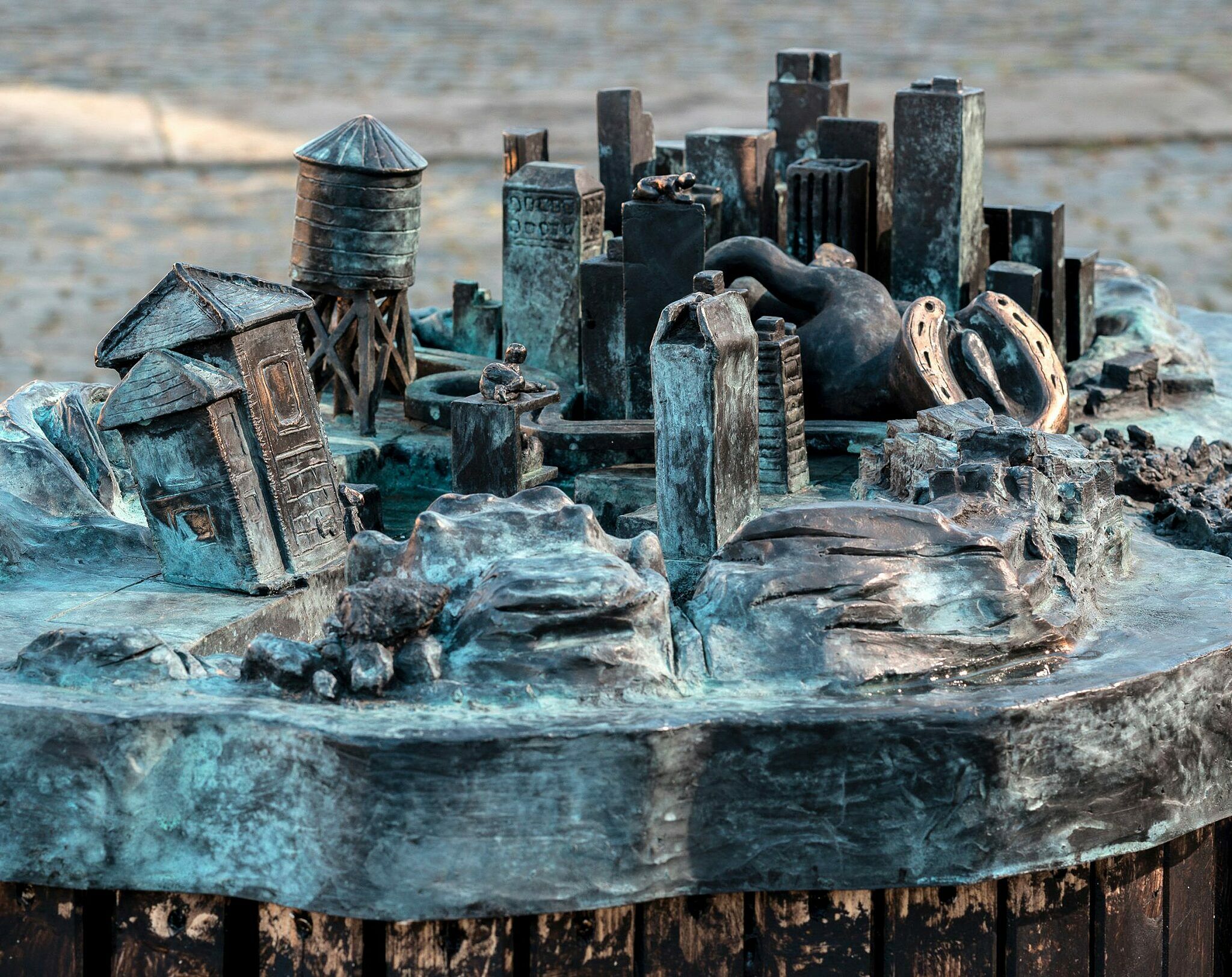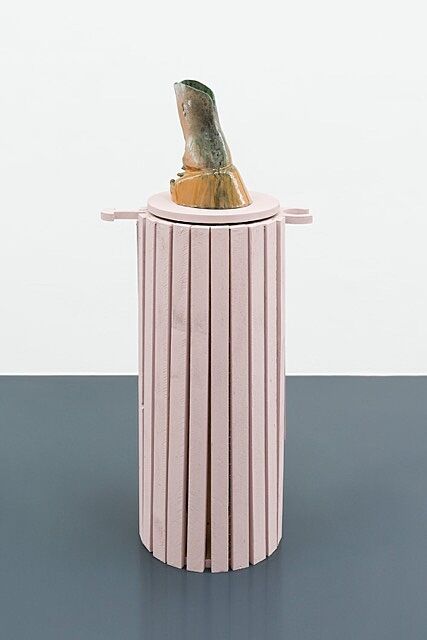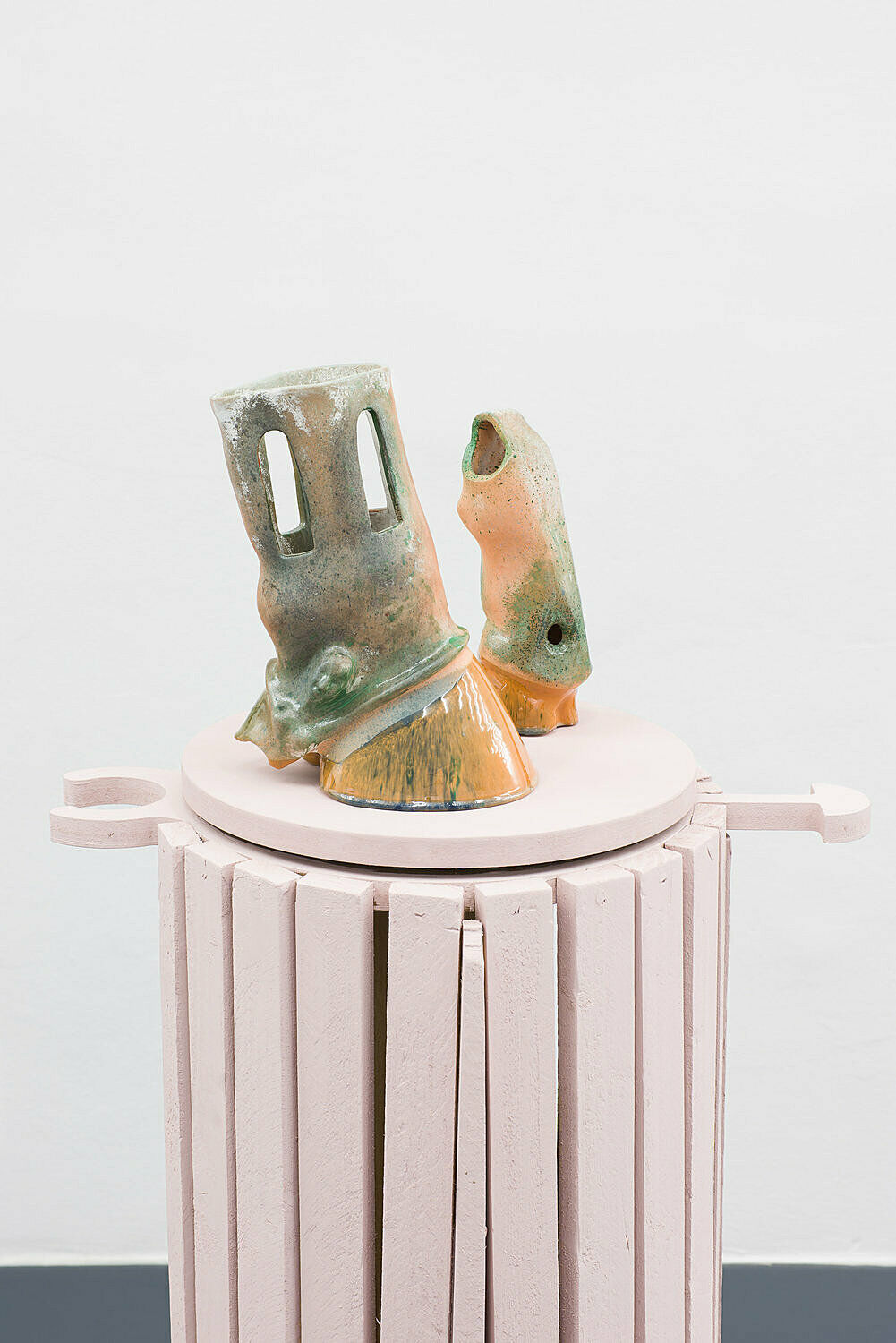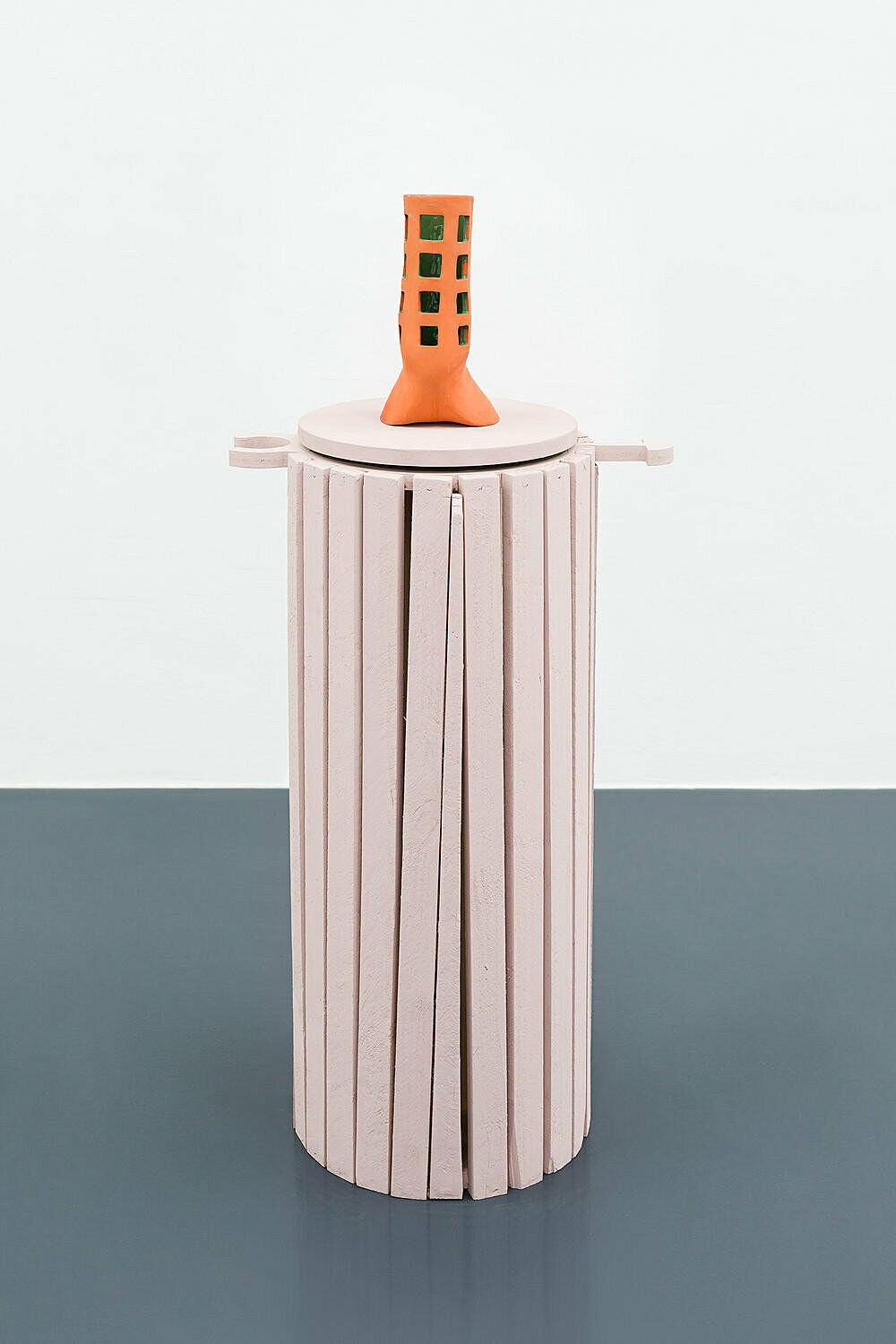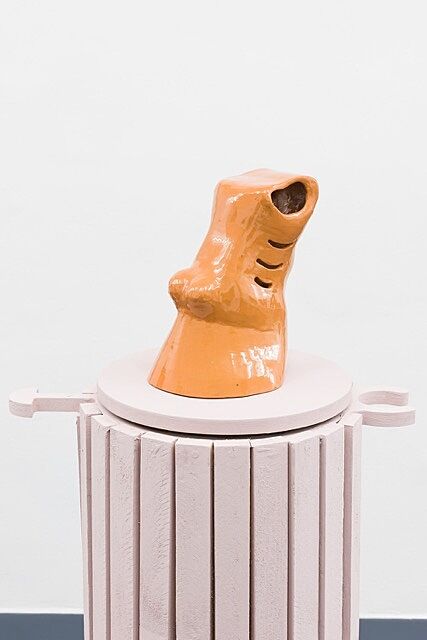Between the Waters | Art & Artists
Mar 9–July 22, 2018
Between the Waters | Art & Artists
Lena Henke
4
Dead Horse Bay is part of Lena Henke’s body of work exploring the transformative and destructive effect that city planner Robert Moses (1888–1981) had on New York in the mid-twentieth century. Superimposing the Manhattan cityscape onto a tombstone-like plinth shaped as a horse’s head, Henke alludes to Brooklyn’s Dead Horse Bay, named for the animal carcasses processed in manufacturing plants there. Later a landfill, Moses used the site during construction of the Brooklyn-Queens Expressway to dispose of the remains of homes that had stood in the highway’s path, as well as the personal items of those forced to leave. Henke’s landscape, which she sees as a self-portrait, also includes her studio; miniatures of her own sculptures; Las Pozas, a surrealistic garden in Mexico; and the fantastical Sacro Bosco, built in northern Italy in the sixteenth century. By scaling down and replicating monomaniacal visions of place, Henke reflects on the way that powerful individuals, often men, can radically alter geography—affecting the lives and livelihoods of thousands.

